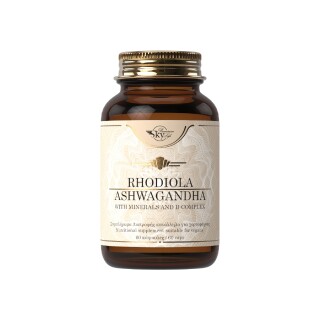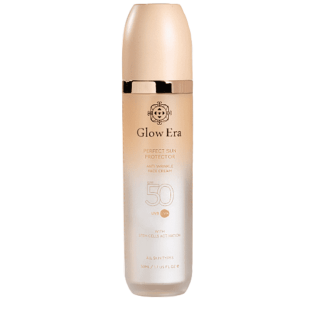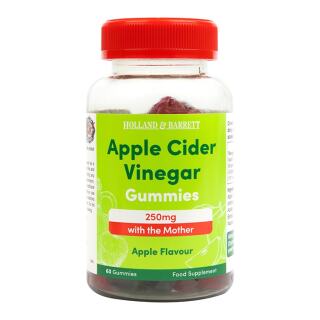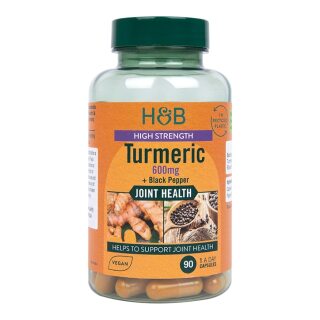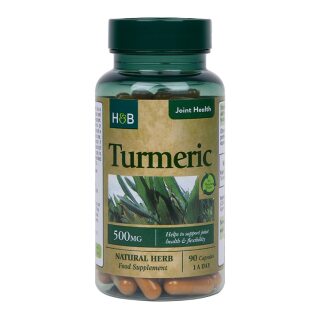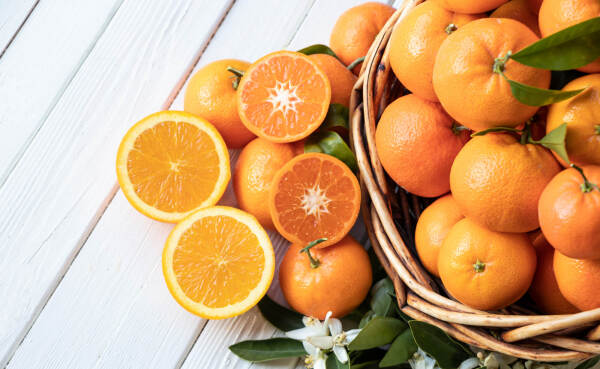What is turmeric?
Turmeric is an herbaceous plant from the Zingiberaceae family – closely related to ginger - and is one of the most famous herbs, which has made its appearance in the Western world some decades ago. However, its use dates back hundreds of years ago, where cultures in Southeast Asia, Polynesia and Latin America3 - where it originated - began to exploit this miraculous herb in many ways. This golden powder is produced after the turmeric root is dried and crushed. The innumerable benefits - to be discussed below - are due to the curcuminoids, a group of polyphenolic compounds, dominated by curcumin, the active ingredient in turmeric. Imagine that the curcumin content of turmeric is about 3-8%5.
Is it safe to consume?
Curcuminoids have been approved for safety by the Food and Drug Administration (FDA) of the United States6. Safety evaluation studies show that both turmeric and curcumin are tolerated at very high doses - on the order of 8000mg - without the occurrence of unwanted side effects, making turmeric a safe herb and thus supplement7.
Use
Its numerous uses include culinary use as a spice, or as a cosmetic, for aromatic purposes or as a colouring agent. However, the beneficial properties of this particular orange-yellow powder have recently been well-known. The first medicinal use of turmeric began with the people from India, in the medical practice of Ayurveda, where turmeric began to be used as a sore throat soother and as part of the treatment of chronic respiratory problems.
Turmeric has been widely studied, demonstrating its multidimensional use in clinical practice, as it offers...
- Antioxidant activity1
- Anti-inflammatory activity2,4
- Antimicrobial activity5
- Antiviral activity5
..while it has been studied for its protection in neurodegenerative diseases5, for its hypolipidemic action in metabolic syndrome5, for its antidiabetic properties, for its protection against carcinogenesis5 and as a supporter in the address of depression5 and generally mental health disorders.

Turmeric supports joint health
Arthritis is a form of joint disorder characterized by chronic inflammation in one or more joints, usually leading to pain and severe movement restricition1,4. The most common forms of arthritis are osteoarthritis, which usually affects the hip and knee area and is characterized by a gradual loss of cartilage integrity, and rheumatoid arthritis. The World Health Organization (WHO) mentions that osteoarthritis affects around 300 million people worldwide4 and is one of the leading causes of reduced quality of life.
Although arthritis has been associated with inflammation and pain, the causes are not yet clear1. For this reason, arthritis prescription aims to reduce its symptoms, in which pain takes the lead. Analgesics, steroids as well as non-steroidal anti-inflammatory drugs (NSAIDs) are the most common line of treatment to reduce chronic pain and inflammation1. However, long-term use of this medication is not recommended for a number of reasons. Pain reduction is transient, and has also been shown to interfere with normal immune system function. Finally, they can cause adverse effects on the gastrointestinal and cardiovascular system1, which is particularly important as people affected by arthritis also "carry" several risk factors, which can increase the odds of cardiovascular events. We can therefore see that the use of a more sustainable, safe and effective solution becomes necessary.
The most recent systematic reviews (i.e. the articles with the greatest scientific strength) have shown promising data on the effect of turmeric and/or curcumin supplementation in improving arthritis symptoms. In particular, a recent review highlights curcumin as a "natural anti-inflammatory", stating that the anti-inflammatory effect of curcumin is similar to that of NSAIDs4. According to a recent review, curcumin appears to act against inflammatory factors in our body, such as C-reactive protein (CRP), tumor necrosis factor α (TNF-α), interleukin-6 (IL-6), factors that are produced in inflammatory state and their continuous increase "carries" ominous messages for our health1,2,4.
In addition, the antioxidant activity of curcumin is one of its most important benefits. In particular, it appears to play an important role in reducing oxidative damage2, as it helps to reduce oxidative stress markers and contributes to the reduced production of enzymes that participate in the formation of free radicals2, which further aids inflammation, as during inflammation, oxidative stress increases rapidly5
Due to the positive effects that turmeric appears to have in reducing inflammation, a recent review highlights the superiority of turmeric in improving muscle recovery after exercise7. The latest studies conducted on samples of active individuals show reduced oxidative stress, reduced muscle soreness and improved cardiovascular and gastrointestinal function with turmeric supplementation, without the presence of side effects. Therefore, turmeric supplementation is considered a safe and beneficial choice for active individuals who wish to enhance athletic performance by improving muscle recovery.
The secret of its effectiveness
Most research that has been done on the effectiveness of turmeric supplementation has used a combination of turmeric and black pepper1,2,3. Unfortunately, the antioxidant compounds in turmeric seem to exhibit rapid metabolism in our bodies, resulting in their rapid elimination. The combination of curcumin and piperine appears to multiply the effectiveness of curcumin, increasing its bioavailability and providing the aforementioned health benefits.
Are there any contraindications to the use of turmeric supplementation?
Although consumption of small amounts of turmeric appears to have no side effects, high doses are likely to cause gastrointestinal distress1,4. Therefore, turmeric supplementation deserves special attention in people with a sensitive gastrointestinal system and in the presence of ulcers or gastritis. The presence of gallstones is also a contraindication as well as the use of anticoagulants. In any case, in case of a chronic medical condition or the use of prescribed medicine, please consult your doctor.
In conclusion, turmeric supplementation seems to be deservedly used as a sustainable intervention to reduce inflammation and pain in arthritis, improving patients’ quality of life, without the presence of unfavorable side effects.
Scientific references
1Daily, J. W., Yang, M., & Park, S. (2016). Efficacy of turmeric extracts and curcumin for alleviating the symptoms of joint arthritis: a systematic review and meta-analysis of randomized clinical trials. Journal of medicinal food, 19(8), 717-729.
2Dehzad, M. J., Ghalandari, H., Nouri, M., & Askarpour, M. (2023). Antioxidant and anti-inflammatory effects of curcumin/turmeric supplementation in adults: A GRADE-assessed systematic review and dose–response meta-analysis of randomized controlled trials. Cytokine, 164, 156144.
3Kocaadam, B., & Şanlier, N. (2017). Curcumin, an active component of turmeric (Curcuma longa), and its effects on health. Critical reviews in food science and nutrition, 57(13), 2889-2895
4Paultre, K., Cade, W., Hernandez, D., Reynolds, J., Greif, D., & Best, T. M. (2021). Therapeutic effects of turmeric or curcumin extract on pain and function for individuals with knee osteoarthritis: a systematic review. BMJ open sport & exercise medicine, 7(1), e000935.
5Sahoo, J. P., Behera, L., Praveena, J., Sawant, S., Mishra, A., Sharma, S. S., ... & Samal, K. C. (2021). The golden spice turmeric (Curcuma longa) and its feasible benefits in prospering human health—a review. American Journal of Plant Sciences, 12(3), 455-475.
6Soleimani, V., Sahebkar, A., & Hosseinzadeh, H. (2018). Turmeric (Curcuma longa) and its major constituent (curcumin) as nontoxic and safe substances. Phytotherapy Research, 32(6), 985-995.
7Suhett, L. G., de Miranda Monteiro Santos, R., Silveira, B. K. S., Leal, A. C. G., de Brito, A. D. M., de Novaes, J. F., & Lucia, C. M. D. (2021). Effects of curcumin supplementation on sport and physical exercise: a systematic review. Critical reviews in food science and nutrition, 61(6), 946-958.


